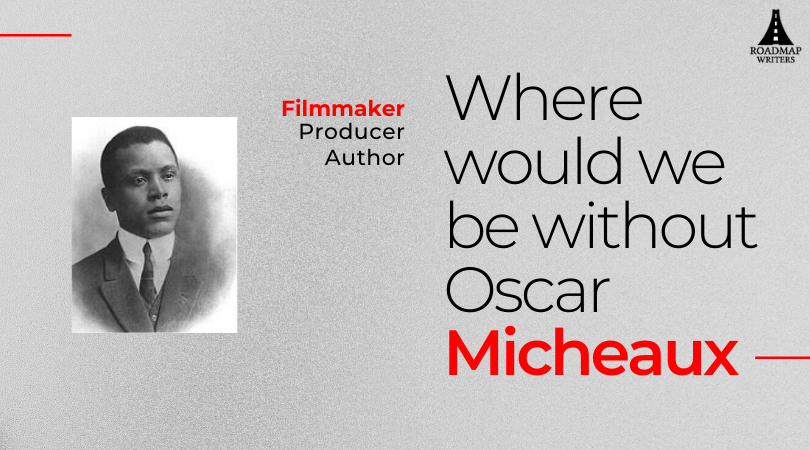
Where Would We Be Without Oscar Micheaux?
By Adquanita Curtis
Having written, produced and directed over 40 films between 1919 and 1948, Oscar Micheaux is lauded as the leading Black filmmaker of the 20th century (the first half anyway), yet many people have never heard of him. I myself only learned of his brilliance a few years ago whilst researching influential filmmakers for a game of “Black Jeopardy” for my Pedagogy class. And ya girl learned a lot! For example, this iconic King was high-key annoyed with how Hollywood consistently portrayed Black people as uneducated, lazy, violent animals whose only purpose in life was to serve white people. So, he decided to take matters into his own hands by using filmmaking as a way to challenge the racial injustices Blacks faced during the beginning of the twentieth century. You know… stuff like job discrimination, mob violence, and economic exploitation to name a few.
Micheaux actively sought to create films that countered white America’s portrayals of Blacks, which heavily emphasized inferior stereotypes (i.e the mammy character), by creating complex characters from different classes. Not only did his films question the value system of both Black and white communities, they were also used to address sensitive issues other filmmakers systematically avoided. Many of these same themes can be seen in the works of contemporary filmmakers such as Ava DuVernay (When They See Us), Ryan Coogler (Fruitvale Station), and Spike Lee (his whole damn filmography).
During the era of race cinema, Micheaux was the first Black filmmaker to not only write, produce, and direct, but also finance and distribute his own films, through the Micheaux Film & Book Company. A company he founded in response to George Johnson, the manager of the Lincoln Motion Picture Company, refusing to allow him to be involved in the production of what would become Micheaux’s first self-produced feature film, The Homesteader.
Many have referred to Micheaux as the D.W. Griffith (aka Lord Douche) of race cinema due to many of his films exhibiting similar aesthetic techniques initially used by Griffith, specifically those in the racially charged film The Birth of A Nation (1915). However, the difference between the two is that Micheaux's films often showed improvements on Griffith's techniques and responses to his racially driven films. Micheaux attacked the racism depicted in D.W.’s The Birth of a Nation with the release of Within Our Gates, which is as bold as it is influential and set the stage for Black Indie films of the 1960s & 70s.
It’s no wonder the Producers Guild Association has called him the most prolific Black, if not the most independent, filmmaker in American cinema, or that a whole film festival was created in his honor: The Micheaux Film Festival. He earned that!
The legend that is Oscar Micheaux was further set apart from his white counterparts via his ability to show the power of Black filmmaking by changing the narrative so that Blacks were shown as prominent well-doers. Thus making his films, which were the first to be screened in “white” only theaters, highly competitive with those made by white filmmakers.
Although Within Our Gates was made almost 100 years ago, its themes are sadly still relevant today, in a time of the #BlackLivesMatter movement. But with modern day visionaries like Regina King (One Night In Miami), Misha Green (Underground, Lovecraft Country), and Barry Jenkins (If Beale Street Could Talk) picking up where Oscar left off, I am highly optimistic that change is surely gone (continue to) come.
And as filmmakers, we must never forget that we all stand on the shoulders of giants… so here’s to hoping we, all of us, recognize and give thanks to the giant that was Oscar Micheaux for all he’s done to help us see over the hill.